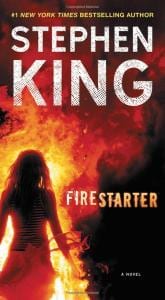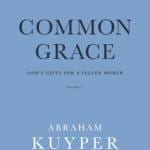In some ways, Firestarter is a classic Stephen King book. There is a damaged individual under attack by mysterious and seemingly all-powerful forces which can only be resisted by power that comes from the very damage in question. There is seemingly random danger and harm done to the innocent. There is suspense and narrow escapes and people who don’t get away and all the other sorts of things we should expect from one of Mr. King’s novels.
And yet in another sense, this is something of an unusual book for him. I’d have to go back and look to see for sure, but I have the feeling that this might be his only stand-alone/straight-up science fiction novel. Which isn’t to say there are no elements of horror in it. It’s just that the major ‘weird fiction-y’ elements are not caused by preternatural forces slugging it out with human beings as the battlefield. There are no “Outsider” or “It” or even naturally-psychic individuals involved. The superpowers of the titular character and others are the result of chemicals, rather than the desecration of sacred burial grounds.

The fact that this is an unusual book for King, however, is not to say it is a sub-par one. As with almost all of his novels, it is a great read and work picking up (his short stories are a different matter entirely…).
In Firestarter, we follow Andy McGee and his daughter Charlie as they try to escape the government who wants to put them both to work fighting Commies. Or killing terrorists. Or doing whatever else it is that shadowy government agencies do. Why would the government be interested in this otherwise unremarkable father/daughter team? Because the government had experimented on Andy and his wife back in their college days, using the power of chemicals to unleash latent psychic powers. Charlie, their daughter, has even more power with the ability to start fires both big and small. So it’s pretty clear why the government would be interested in these two.
Which also shows that there’s another fairly common theme at work here: a government organization that is simultaneously powerful, heavy-handed, and incompetent. This is something we see fairly often in fiction, depending a lot on the political orientation of the author and what’s going on at the time when it was written. The other thing that we see fairly regularly is the honest and hard-working government official who does their job well, again depending on the author’s politics and who happens to be in power at the time.
So where should Christians fall? Should we see government officials as corrupt and incompetent? Should we see them as hardworking and virtuous? If our children start showing signs of superpowers, should we call the feds or fear them?
The answer is clearly ‘both.’ Or, to say this another way, we should exercise wisdom here. The government is something that is both good and fallen. And we should see it as both regardless of who is in power. The fact that a given administration might be friendlier to our preferred policies doesn’t make it a good or sinless government; while ideological or political opponents being in power doesn’t negate the good that government does.
And that’s without even getting into unique aspects of American government like federalism and separation of powers–there may be Congressmen that can be approached when executive branch officials cannot (and vice-versa). We might have corrupt local officials and virtuous state officials (or vice-versa). And so on. We need to regularly exercise wisdom when thinking about these issues, and not make sweeping conclusions about the whole breadth and scope of our governmental system.
Firestarter gives us one side of that, and it does so in a well-written and engaging style that is worth reading.
Dr. Coyle Neal is co-host of the City of Man Podcast and an Associate Professor of Political Science at Southwest Baptist University in Bolivar, MO











